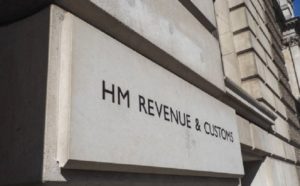The UK’s Committee of Public Accounts recently published its second report of 2025 shining the spotlight on HMRC. The report focuses on tax evasion and recommends that HMRC should establish a clear strategy for tackling it. Olivia Wiggett at RSM in a briefing note asks what this might mean for the future of investigations into tax evasion.
According to the Committee of Public Accounts’ (PAC) latest report on tax evasion in the retail sector, HMRC launched 430 new criminal investigations into suspected tax evasion in 2023/24, compared to 10,200 civil investigations into the same offence. In criminally investigating less than 5% of cases of suspected tax evasion, HMRC is clearly demonstrating its preference to use civil powers of investigation.
Civil investigations of tax evasion are managed by HMRC’s Fraud Investigation Service (FIS). HMRC told PAC that it had added 400 people to FIS since 2018/19, with the team now 4,800-strong, and plans to increase that to 5,400 by 2029/30. Whilst 600 investigators over the next five years may sound like a lot, the impact of tax crime is vast, with the PAC report stating the cost of tax evasion is likely much higher than HMRC’s estimate of £5.5bn.
HMRC can choose to investigate suspected tax evasion either criminally or civilly. Civil investigations are generally undertaken through a procedure called Code of Practice 9. Code of Practice 9 provides taxpayers who have committed tax evasion with the opportunity to disclose all errors in their tax affairs. Whilst HMRC reserves the right to start a criminal investigation into the taxpayer, they will receive immunity from prosecution if accepted into the regime and a full disclosure is made.
Code of Practice 9 is a useful tool for HMRC as the onus is on the taxpayer and their adviser to undertake a thorough investigation, before presenting facts, evidence and associated tax liabilities to HMRC. If the taxpayer co-operates fully, they will not only receive immunity from prosecution, but they will mitigate the level of financial penalty imposed and can protect themselves from being named and shamed by HMRC.
A criminal prosecution requires evidence of guilt beyond a reasonable doubt, as opposed to on the balance of probabilities which applies to a civil case. This means criminal investigations generally take much longer and require a significant amount of HMRC resource to ensure Crown Prosecution Service support and to achieve a successful prosecution.
With mounting pressure to reduce the tax gap, HMRC will want to use resources in the most efficient manner possible. It is therefore predicted that as the size of the FIS team grows, so will the number of Code of Practice 9 investigations.





